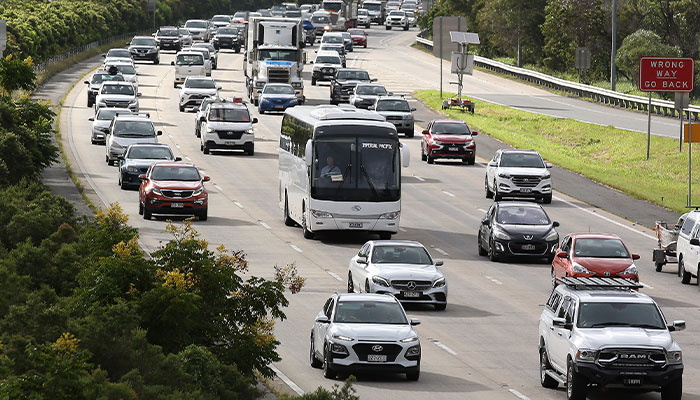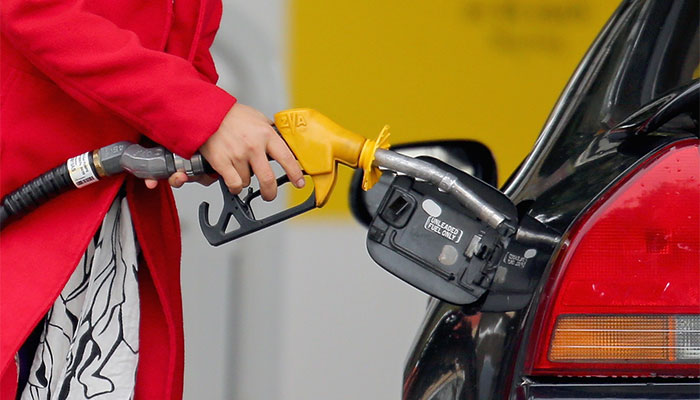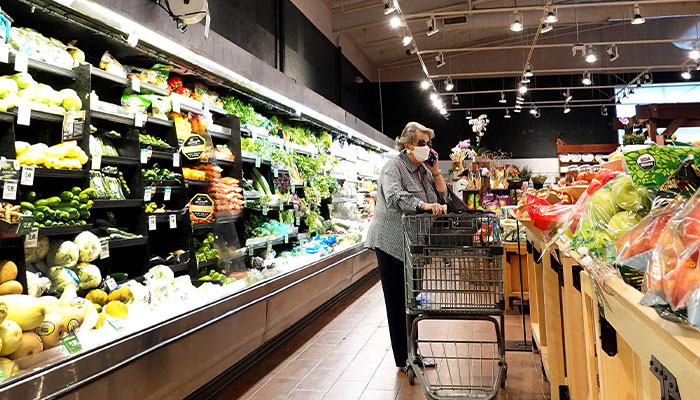Australian motorists might be bracing for an increase in prices at the petrol pump as the temporary halt to the fuel excise comes to an end on 28 September, but it’s also a chance for the Federal Government to usher in a new era of cleaner fuel and lower taxes.

On the road: As motorists prepare for a fuel price hike, Dr Lurion De Mello says reform should include a focus on natural gas for transport, particularly for trucks and buses.
Dr Lurion De Mello from the Department of Applied Finance at Macquarie Business School says this is an ideal time for authorities to overhaul the fuel tax regime.
“We need better tax incentives to encourage the use of cleaner fuels like the octane 95 and 98. The 91 fuels should be discouraged with higher taxes and then eventually phased out as they have been in Europe.
“The federal government should focus on natural gas as a transportation fuel, particularly for trucks and buses. We need a roadmap to move away from the highly polluting diesel. Australia also needs to get on top of sovereign capability when it comes to fuel supplies and defence capabilities. A good tax and incentive scheme will get us there.”
EVs and hybrids
De Mello says while it is important to increase the market share of electric vehicles (EVs), a greater penetration of hybrid vehicles beyond taxi fleets should also be encouraged. “Hybrids have revolutionised the taxi industry – the cars require minimum maintenance and are extremely comfortable.”
On a year-to-date basis, EV sales represent 2 per cent of the total market, with hybrids at 7.6 per cent, and plug-in hybrids at 0.6 per cent.
The 91 fuels should be discouraged with higher taxes and then eventually phased out as they have been in Europe.
Macquarie University research has found that a $10,000 reduction in the price of EVs would make them more affordable and could drive an increase in market share of up to 42 per cent.
There already is growing demand for EVs as August sales figures show that a record 4.4 per cent of all new units sold in Australia were for pure battery EVs. The Federal Chamber of Automotive Industries, the peak body for Australia’s automotive industry, says this is the highest market share for EVs ever recorded in a single month. The price of an EV in Australia currently ranges from around $41,000 to $177,000.
Fatter refiner margins
The Morrison government’s 50 per cent cut to the 44c a litre impost in the March budget amid soaring oil prices – and as part of measures taken to woo voters ahead of the May election – has not been extended by the new government, nor has it resulted in slimmer refiner margins.

Fuel fail: Despite the excise relief, retail petrol prices still reached 14-year highs due to international factors.
The Australian Competition and Consumer Commission (ACCC) found the price difference between the price of refined petrol and crude oil rose to 24.1 cents per litre in the June quarter from 7.8 cents per litre in March. In its latest quarterly report on the Australian petroleum market, the ACCC says the rising profit margins stem from strong global demand for refined products, tighter supply due to refinery closures, Russian sanctions and reduced exports of refined products from China.
The ACCC report says average retail petrol prices in the June quarter in the nation’s five largest cities were 188.0 cents per litre, up by 6.1 cents per litre from the March quarter. In real terms, prices in the June quarter hit their highest level since the 2008 September quarter, when average prices in 2021-22 dollar terms were 206.9 cents per litre.
“Despite the six-month cut in fuel excise reducing retail petrol prices in the June quarter 2022, the ACCC’s latest quarterly petrol monitoring report shows this could not prevent real (inflation adjusted) retail petrol prices reaching new 14-year highs due to international factors,” the report says.
Petrol price outlook
The Albanese government has resisted calls to extend the temporary measure beyond the initial six-month deadline which will result in a petrol price increase of at least 20c/litre from 29 September.

Food for thought: Diesel tax is one of the main costs that is passed onto consumers through high grocery prices, says Dr De Mello.
“Extending the tax cut beyond 28 September would not be the best policy decision for the government. It is an important source of revenue beyond just repairing and building new roads,” De Mello says.
“The former government set an end date based on crude oil prices coming back to around US$100. Prices have in fact fallen further, but petrol prices have not come down significantly compared to historical levels when oil prices were around US$90 a barrel.
“Small supply constraints from overseas refineries remain. Fuel prices cycles are extremely volatile on the east coast of Australia. At the high end, prices of 91 and 95 fuel are around $1.90 or more a litre.”
De Mello argues a stronger Australian dollar is required to keep a lid on petrol prices as Australia imports 90 per cent of its petrol, diesel and aviation fuel. Increased refinery output of petrol from Singapore and Malaysia should also help keep prices down which ought to minimise the impact of the fuel excise going back to 44.2c/litre.
“A combination of favourable outcomes should keep petrol under $2/litre. If crude oil prices go above US$100, petrol prices will start with '2' at the bowser again.” The price for Brent Crude is hovering around US$95 a barrel.
De Mello adds there should have been a greater tax cut applied to diesel when the excise was halved as that fuel has an indirect impact on consumers due to the transportation costs of goods.
“The cut was uniform across all fuel types and that did not make sense. Diesel tax should have been cut at a greater rate as this is one of the main costs that is passed onto consumers through high grocery prices. High diesel prices hit the pockets of diesel vehicle owners as well.”

Dr Lurion De Mello (pictured) is a Senior Lecturer in the Department of Applied Finance at the Macquarie Business School.



